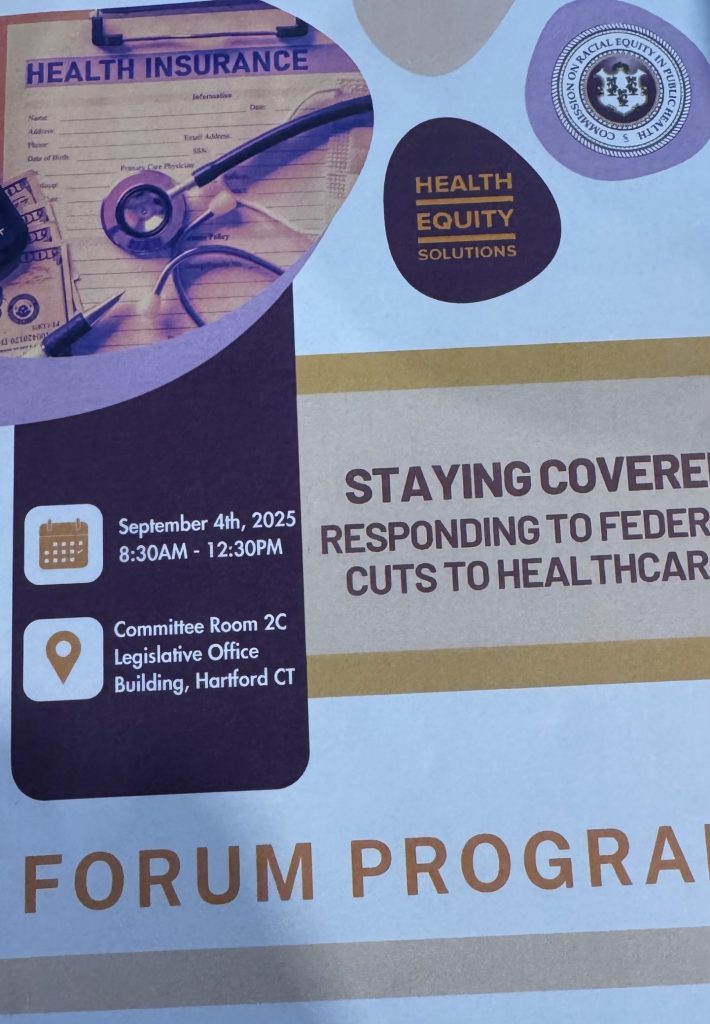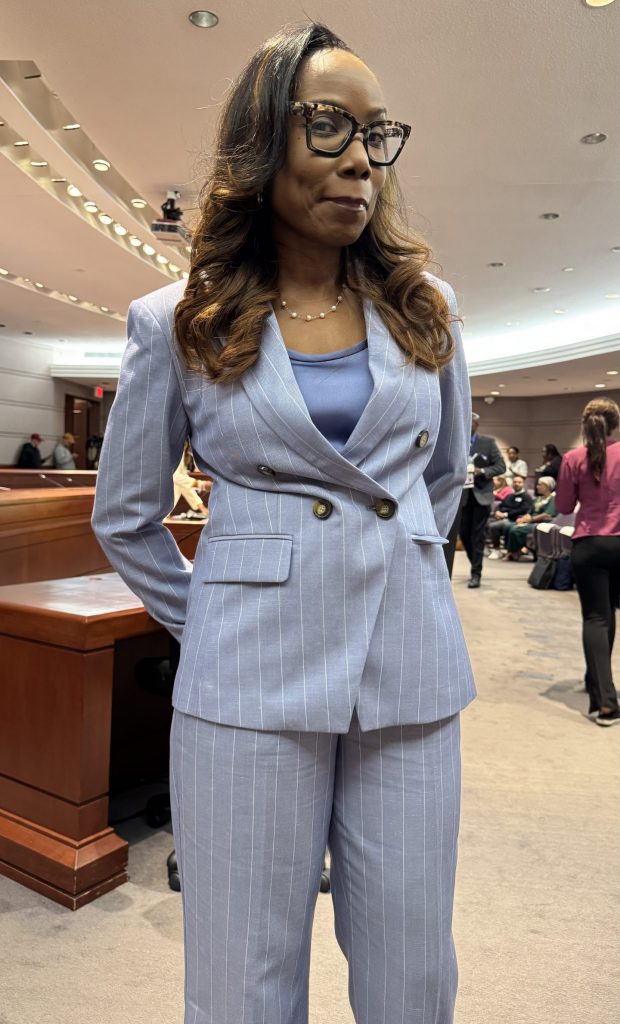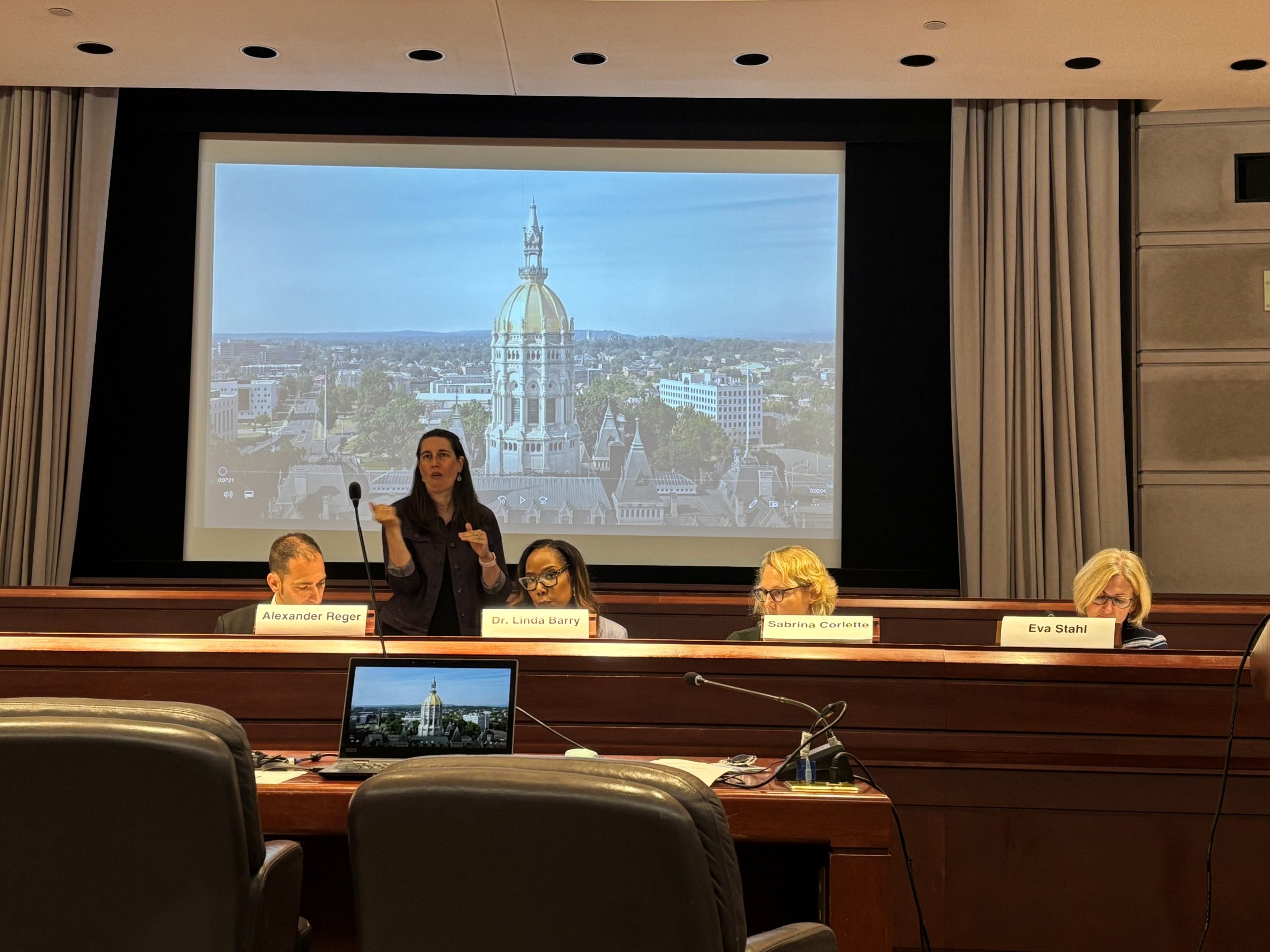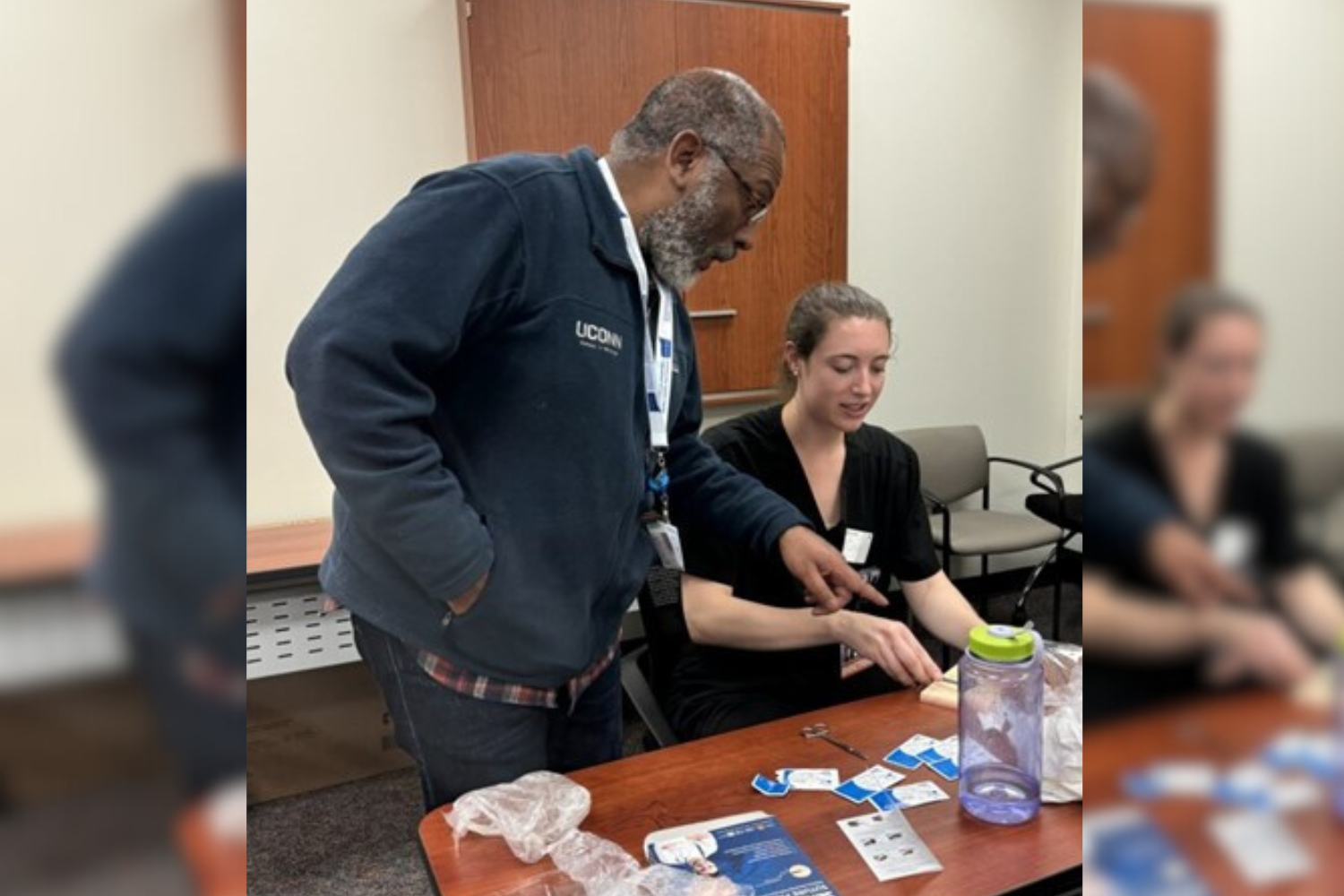The Time to Act is Now
On September 4th the Connecticut Commission on Racial Equity in Public Health and Health Equity Solutions hosted a half day forum grappling with how to keep Connecticut residents covered as federal health care cuts are rolled out.
The day began with remarks from Ayesha Clarke, executive director of Health Equity Solutions, and the premiere of a video “The Impact of Cuts On the Front Line.” The video emphasized the ways in which the cuts will impact health care delivery systems across the state, as well as providers and residents. Clarke elevated the importance of including impacted groups in the identification of meaningful solutions.
 The welcome was followed by comments from Commissioner Andrea Barton Reeves and Deputy Commissioner Peter Hadler from the Department of Social Services (DSS) as well as James Michel, the Chief Executive Officer of Access Health Connecticut. Speakers stressed that Connecticut needs a plan of action given that an estimated 300,000 residents will be impacted by the federal cuts. DSS has started identifying potential pain points and barriers that need to be addressed as the cuts are rolled out. Presenters stated that the cuts will not just impact residents and the health care delivery system but will also have major implications for DSS. As a result, DSS is working to set up an entirely new workflow and technical system while simultaneously continuing to serve approximately 980,000 people across the state. It was emphasized that this new system will be critical for ensuring residents are able to stay insured because those who fall off may face eligibility challenges and end up relying on the emergency room for care. Commissioner Barton Reeves also noted the importance of community partnerships and getting needed information to residents across the state.
The welcome was followed by comments from Commissioner Andrea Barton Reeves and Deputy Commissioner Peter Hadler from the Department of Social Services (DSS) as well as James Michel, the Chief Executive Officer of Access Health Connecticut. Speakers stressed that Connecticut needs a plan of action given that an estimated 300,000 residents will be impacted by the federal cuts. DSS has started identifying potential pain points and barriers that need to be addressed as the cuts are rolled out. Presenters stated that the cuts will not just impact residents and the health care delivery system but will also have major implications for DSS. As a result, DSS is working to set up an entirely new workflow and technical system while simultaneously continuing to serve approximately 980,000 people across the state. It was emphasized that this new system will be critical for ensuring residents are able to stay insured because those who fall off may face eligibility challenges and end up relying on the emergency room for care. Commissioner Barton Reeves also noted the importance of community partnerships and getting needed information to residents across the state.
The DSS presentation was followed by remarks from Comptroller Sean Scanlon who stressed the need for a plan to help impacted residents and a panel moderated by Alexander Reger, director of the Health Care Benchmarks Initiative at the Office of Health Strategy. Panelists included Eva Stahl, vice president for Public Policy and Program Management at Undue Medical Debt; Sabrina Corlette, research professor, founder and co-director of the Center for Health Insurance Reforms at Georgetown University; and Dr. Linda Barry, surgeon, professor and associate dean of Multi-Cultural and Community Affairs at UConn School of Medicine and Associate Director of the UConn Health Disparities Institute.

Panelists stressed how federal cuts will drive up uninsurance rates in Connecticut. Furthermore, they explained that insurance is the best protection against medical debt and given the anticipated losses in insurance coverage, we are likely to see increases in medical debt for residents across the state. Moreover, uninsurance results in patients forgoing or delaying care, worsening clinical outcomes, contributing to longer hospital stays and higher rates of premature death.
The panel also foreshadowed the impact of federal cuts on hospitals across the state. Barry of UConn explained that emergency rooms are intended for urgent matters, stabilizing patients, and not to be a source of primary care. This is more costly. With the continuity of care this will perpetuate a cycle of poor health outcomes. Barry also noted the system is already not working well and at capacity. The existing shortage of providers and additional stress on the hospitals will only continue to fuel provider burnout.
The panel culminated by underscoring three key takeaways:
1) Act now.
2) States are not powerless.
3) We can build a better system together.
Pareesa Charmchi Goodwin, executive director of the Connecticut Commission on Racial Equity in Public Health, closed by reiterating that this is not the time to watch and wait. It is time to plan and act. She reiterated a poignant point made earlier by James Michel – hope is not a plan, and the state needs to establish a plan, especially given that Connecticut has the resources and the expertise to mitigate the anticipated deleterious effects of the federal cuts.
Watch a recording of the event.
Learn more about Medicaid in CT.
Learn about the impacts of federal cuts on CT DSS.
Latest UConn Today
- Making Strides, Breaking Records: UConn’s School of Pharmacy Places Second in the 2025 ACCP Clinical Research ChallengeThis past Spring, three UConn Pharmacy students showcased their grit and determination in the 2025 ACCP (American College of Clinical Pharmacy) Clinical Research Challenge, earning second place – the highest finish UConn has ever achieved in the competition.
- Cooperation and Competition: How Fetal and Maternal Cells Evolved to Work TogetherStudy published in PNAS reexamines the dogma of genetic conflict in the maternal-fetal interface
- Continuing Education for Health Professionals and Students at the Right Time, Right Cost, and Right Here!Health care professionals turn to the CT AHEC Network based at UConn Health to get the training and information they need to keep up to date.
- The Cato T. Laurencin Institute Pre-K Award Program Graduates Another Successful CohortEstablished in 2014 by UConn Professor Sir Cato T. Laurencin, the Pre-K Junior Faculty Career Development Award Program is a pioneering two-year interactive award program.
- UConn Law Launches Graduate Certificate in Insurance LawThe program is open to individuals with a law degree, as well as students with an advanced degree in a related field and with significant legal or insurance experience.
- Damsels, Femme Fatales, and Queens of CrimeTwo UConn professors on the history of fictional female criminals and crime-fighters













